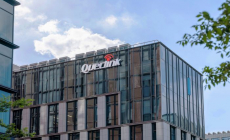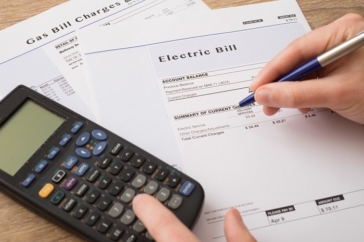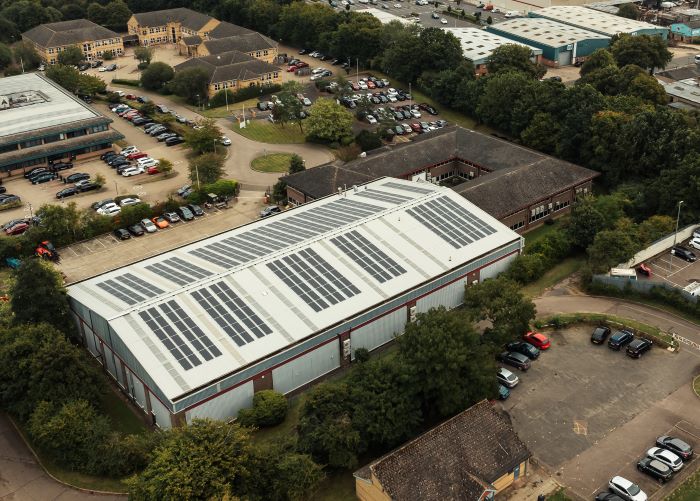-
SLEEVE IT, PACK IT SHIP IT – PRISM CELEBRATES CLIENT SUCCESS WITH THERMOCHROMIC & SUSTAINABLE SOLUTIONS AT PACKAGING INNOVATIONS & EMPACK 2026 - 19 hours ago
-
Delivery management platform, Scurri, increased its total shipments processed by +17% YOY to €19.2 billion Gross Merchandise Value (GMV) in 2025 - January 23, 2026
-
SURECAM LAUNCHES 360° DASHCAM SOLUTION TO ENHANCE FLEET VISIBILITY, SAFETY AND COMPLIANCE - January 21, 2026
-
FULL SUITE AHEAD – KEY SPONSOR NULOGY TAKES CENTRE STAGE ATPACKAGING INNOVATIONS & EMPACK 2026 - January 21, 2026
-
PKF Littlejohn Advisory appoints haulage expert Ian Jones as Consultant - January 19, 2026
-
QUECLINK LAUNCHES LOW-COST COMMERCIAL FLEET TELEMATICS HARDWARE SOLUTION - January 19, 2026
-
The rise of Snapchat as an ecommerce platform - January 12, 2026
-
QUECLINK NAMED LEADING TELEMATICS HARDWARE PROVIDER AFTER YEAR OF GROWTH AND INNOVATION - January 9, 2026
-
Women Leading the Way in the UK Material Handling Industry - December 12, 2025
-
DATA ANALYSIS – THE FOUNDATION OF EVERY PEAK SEASON - December 5, 2025
Energy price cap sparks warning for businesses falling out of contract and reinforces urgency of net-zero decision making
In a new report, commercial energy and sustainability consultancy Advantage Utilities has warned businesses that falling out of contract onto deemed rates is to be avoided at all costs, given the price cap announced by the government which only covers wholesale price.
The warning was given against a backdrop that energy conditions have improved since the price peak in August, with prices continuing to decrease.
With the UK government offering energy price cap support to both domestic and non-domestic consumers, businesses can better plan for the future, with the price cap in place for the next six months, capping wholesale costs only. It is therefore crucial that businesses avoid deemed rates which are likely to be significantly higher and uncertain.
Net-zero decision-making
Unprecedented increases in energy within the UK market have rapidly advanced the case for net-zero solutions. The Prime Minister echoed this, stating that “in the meantime, companies with wherewithal need to be looking for ways they can improve energy efficiency and increase direct energy generation”.
The Advantage Utilities report offers practical support through outlining three key factors which determine responses of businesses when considering different technologies . These are: economic savings, environmental benefits, resource allocation.
In light of the beneficial energy price cap for businesses, decision-makers now have the confidence to integrate net-zero roadmaps with greater clarity over budget forecasts. As a result of economic savings over past decades, the typical return on investment of many technologies is from 1 to 5 years, further incentivising the economic case for net-zero technology.
Environmental awareness also continues to rise, meaning the way businesses manage their carbon footprint has never been greater – a trend that is set to continue. Environmental benefits from on-site generation and efficiency remain beneficial to businesses as they reduce dependence on non-environmentally friendly grid-sourced energy.
Commenting on the report, Andrew Grover, Chief Executive Officer at Advantage Utilities, said, “Businesses now know what they are spending, what resources they have to mitigate their grid consumption, and the timeframes to initiate these technologies. Aside from energy costs, pressure on businesses from various sources to be environmentally aware and manage their carbon footprint has never been greater. This is a trend that is almost certain to continue as we are already seeing a huge uptake in demand from businesses wanting to address their Scope 1, 2 and in many cases Scope 3 emissions.”
Additional guidance and advice on energy management can be found within Advantage Utilities’ most recent report here.

































